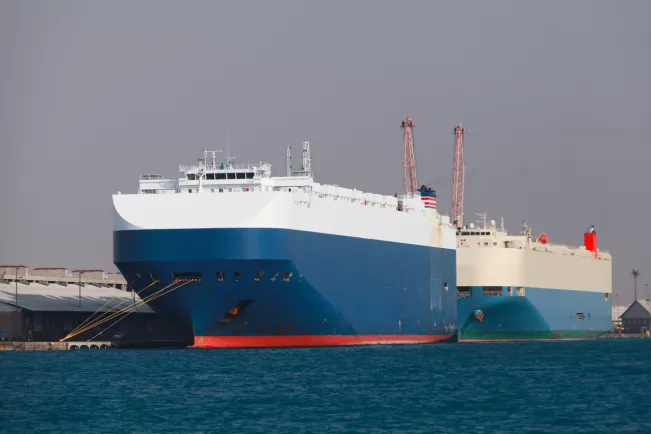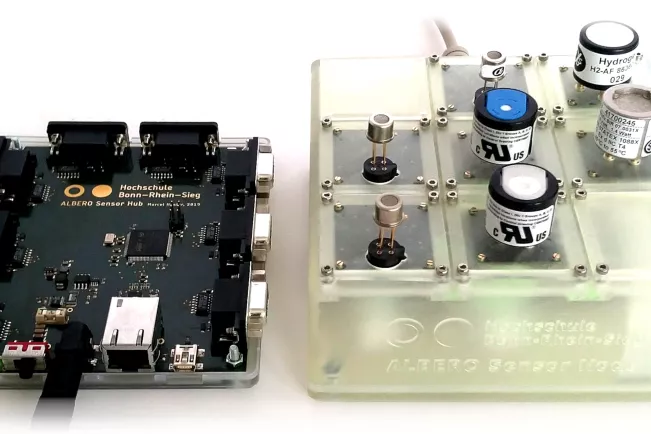Communications and Marketing
Alternative propulsion on board: H-BRS develops technology for early detection of fires on ships

The existing on-board fire protection systems are not designed for the special challenges of alternative vehicle drives. Lithium-ion batteries of e-cars, alternative hydrogen or gas drives and higher proportions of plastics in cars all make new solutions an urgent necessity.
In the "ALBERO" project funded by the Federal Ministry of Education and Research, Hochschule Bonn-Rhein-Sieg has developed special sensor technology for the early detection of critical states of lithium batteries and fire hazards in gas or hydrogen/fuel cell-powered vehicles as well as for monitoring ferry decks. The prototypes, which have been successfully tested at sea, can be integrated into the fire alarm systems of ferries and car transporters. Through early detection, crucial minutes can thus be gained for firefighting.
In addition to the development of sensor technologies, the ALBERO project was also dedicated to strategies and recommendations for fire fighting and risk minimisation for the transport of alternatively powered vehicles on RoRo ferries.

ALBERO and subsequent EU projects have submitted scientific recommendations to the European Maritime Safety Agency (EMSA) to reduce the risk of fire disasters on car carriers and ro-ro ferries. EMSA has included these in its "Guidance for AFVs carriage in ro-ro spaces" of 23 May 2022.
"The risk of vehicle fires with catastrophic consequences for passengers, crew and shipping can be significantly reduced with modern sensor technology for monitoring the decks," says Professor Peter Kaul, head of the ALBERO project at H-BRS. "When lithium-ion batteries overheat on board, gas leaks or smouldering fires occur, every minute counts to prevent fires that can no longer be controlled. Our sensor technology has shown that early detection of most fire risks of alternatively powered vehicles is possible."
The fire on the "Felicity Ace" last year showed the extent of the damage. The loss of 4,000 vehicles, including numerous luxury cars, was put at 330 million US dollars. Total damage from the sunken van was 500 million dollars, not including environmental damage. If the "Fremantle Highway" sinks in the tidal flats with about 3800 vehicles on board, the total cost, including damage to the environment, fisheries and tourism, is expected to be in the billions.
"The technology is available and could be rapidly developed to the product stage," says Professor Kaul, "if further funding and incentives are provided for the industry. Otherwise, a possible transfer will fail." What is needed is the rapid implementation of the recommendations in internationally binding regulations for vehicle transport at sea and insurance obligations that cover all environmental damage, adds Christopher Becher, Managing Director of the ISF.

Press photo for download
Contact

Christopher Becher
Managing director ISF, Research, Radiation Protection Officer at the Department of Natural Sciences
Location
Rheinbach
Room
G 127
Address
Von-Liebig-Straße 20
53359, Rheinbach
Telephone
+49 2241 865 591